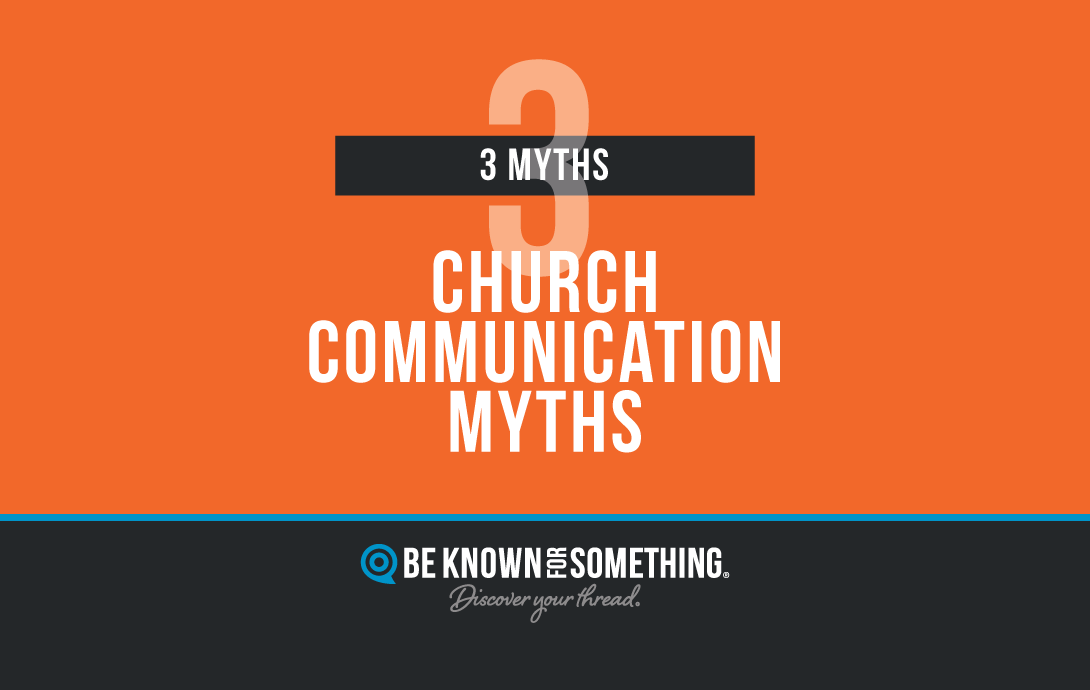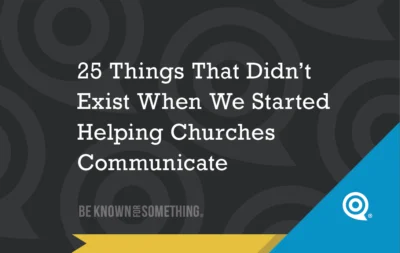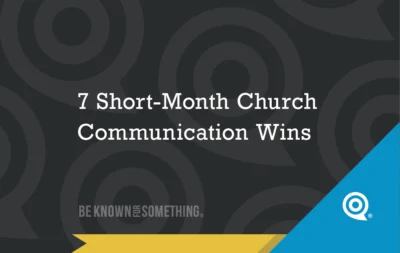3 Church Communication Myths

Church communication is a popular topic in the church world. But the expectations of how to fix communication are often overinflated. It’s not a cure-all. In fact, effective communication takes time as the correct messages are produced consistently. Producing the right messages takes talent and skill especially when consistency is required.
Here are 3 church communication myths that need to be understood:
- A bad event doesn’t benefit from effective communication. Your congregation knows the hype and has reasonable expectations for your church events. Saying “this is a must-attend ministry opportunity” over and over does not increase attendance — unless there’s validity to the assertion. Every event in your church can’t be “the best thing ever”. Truth: Communication needs to state the benefit of attending or participating along with pertinent details (that requires someone to decide what the value is for attendance). Communication cannot “fix” a bad event or poor attendance. Be sure to work on the quality of your ministries before communicating them. Will that fix everything instantly? Not if your congregation or community has endured years of lackluster events. It’ll take time for positive word-of-mouth to support the communication claims.
- The more you say, the more important it’ll feel. Many leaders feel that “if we talk multiple times about something” it will feel like everyone should feel the importance of it. Or, if we tell lots of details and extend the promotion to include “everything” about the event, more people will get a sense of urgency. The opposite is often the case. Truth: People don’t have time to listen to redundancy or read long paragraphs. What we’ve learned from the research? People are quick to half-listen when they feel you get too detailed or sense redundancy. In print? They tend to scan for details. Ultimately, people want to know “what’s in it for me”. So, ensure the benefit is compelling and simple, and you’ll capture the attention and attendance you seek. And remember that most people don’t want ALL the details during the promotion — instead, send them to your website for additional details (if they want them).
- All stories communicate effectively. We hear regularly that churches must tell stories. This isn’t always the case — some stories shouldn’t be told. And the way they’re told is just as important. In fact, many stories hurt the communication rather than help it. Truth: Ensure your story is edited to the shortest length possible to keep the point of it. Make sure there’s a clear ending and reasonable point that can be gleaned by everyone listening. Make sure the hero of the story is not you or the church leadership! It’s always “them” — and make sure the point of the story can be quickly applied to the congregation that’s listening or reading. Other bonuses? Think about good storytelling formula: have a clear villain (that wants the hero to fail), a clear hero with goals to achieve, and a guide that helps take them on a journey. And the end? A twist or unexpected outcome always works effectively and captures the attention of the listener/reader. Just remember the attention span of Americans today is short. Very short. So edit (for all of your communication)!
Want 25 Game-Changing Resolutions?
Related Posts

Church Digital Marketing Clarity: 6 Ways
Church digital marketing has become unavoidable. Churches everywhere feel the pressure to show up online. However, many pastors and leaders

25 Things That Didn’t Exist When We Started Helping Churches Communicate
Back in 2001, we launched Be Known for Something from the old Krispy Kreme test-kitchen and marketing offices in Winston-Salem,

7 Short-Month Church Communication Wins
February is the shortest month of the year, which makes it perfect for simple church communication improvements that don’t require


